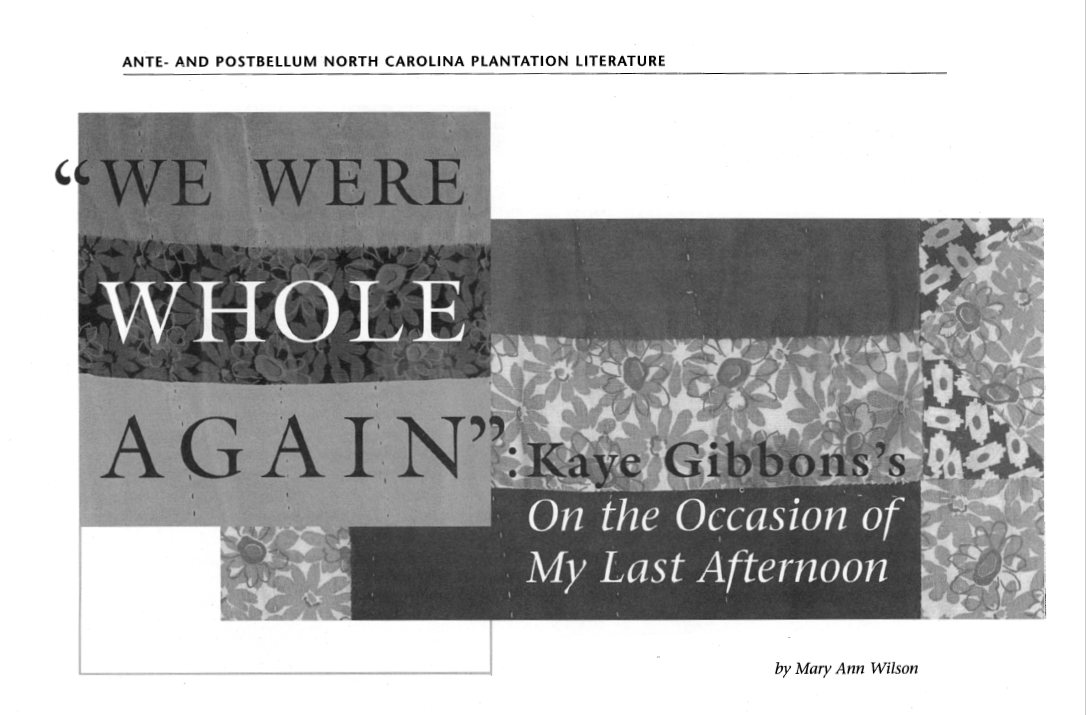Friday from the Archives: “We Were Whole Again: Kaye Gibbons’s On the Occasion of My Last Afternoon” by Mary Ann Wilson from NCLR 8 (1999)
by Shelby Hans
Dr. Mary Ann Wilson explores the work of Kaye Gibbons, particularly her 1998 novel On the Occasion of My Last Afternoon. Gibbons’s novel focuses on Emma Garnet Tate as she recounts her life, especially her experiences around the Civil War. Of this Wilson writes, “Perhaps, amid the considerable scholarship on women and the war in the last two decades, we need to hear this small, personal voice focusing our cultural and collective memory.”
Wilson begins by placing Occasion in the larger framework of Gibbons’s fiction, comparing it to her earlier novels Ellen Foster and Sights Unseen and remarking on Gibbons’s interest in “the Southern female bildungsroman.” As Wilson explains, Gibbons’s foray into the realm of the post-Civil War novel is unsurprising and possibly hinted at by the narrator of Sights Unseen, Hattie Barnes. In this venture, “Gibbons even brings the war into the domestic arena later in the novel by turning Emma’s house into a hospital where she and her physician-husband nurse the sick and dying.”
Gibbons places her novel in a time that follows the Civil War but also includes events that “work to change not only the configuration and image of the United States but women’s lives as well” citing that Occasion “begins in 1840, eight years before the Seneca Falls Convention” and “ends on the cusp of the new century, one year after Kate Chopin’s The Awakening scandalized the reading public….” Wilson writes that Emma, influenced by such a critical time, “rejects the Southern gentlelady model her mother and sister Maureen represent.”
In closing, Wilson returns to the greater canon of Gibbons’s works by saying, “To read a Kaye Gibbons novel is to enter a fictional world that rests on faith in the power of language to capture reality, to bridge emotional chasms, to heal and forgive.” Gibbons’s body of work over the years earned her a spot in the 2024 cohort in the North Carolina Literary Hall of Fame.
Read the entire article on Gale Cengage or by purchasing a copy of the 1999 issue.
